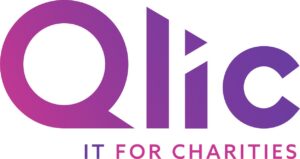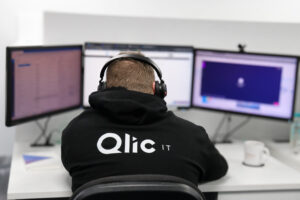
Trust remains a critical barrier to charitable giving. A survey by CharityLink found that 12% of respondents don’t donate because they don’t trust charities to spend the money well. Unfortunately, concerns about transparency, financial mismanagement, and even fraud can discourage potential donors. In some cases, a lack of accountability in the nonprofit sector allows scammers to take advantage of people’s goodwill, further destroying trust in charitable organisations.
But what if there was a way to make charity donations more transparent, secure, and efficient? Blockchain technology could transform the way donations are tracked and managed. Charities are now beginning to tap into this new market of digital currencies, using NFT tokens to raise funds and grow their supporter base.
By enabling real-time transparency, reducing fraud, and ensuring that funds reach their intended purpose, blockchain has the potential to restore donor confidence and drive more contributions to genuine causes. This is especially true as the crypto community grows and more individuals are interested in using digital assets for philanthropic purposes.
In this blog, we’ll explore how blockchain works, why it can be a game-changer for charity donations, and how nonprofits can leverage this technology to increase transparency and trust among their supporters.
What is Blockchain Technology?
At its core, blockchain is a decentralised, tamper-proof digital ledger, a safe, transparent, and unchangeable record of transactions. Imagine it as a shared spreadsheet that everyone can see, but no one can alter without agreement from the entire network. Every time a new transaction (such as a donation) is made, it’s added as a block to a chain of previous transactions, creating a permanent, tamper-proof record.
Blockchain can be used to record and track transactions involving fiat currency, even if the currency itself isn’t a cryptocurrency. This can improve transparency and reduce the risk of fraud in traditional financial systems.
For philanthropy, this technology has game-changing potential. By providing an evident, trackable record of donations, blockchain ensures that funds go straight to their intended recipients and are used ethically. Donors can see exactly where their money is going, lowering the risk of fraud and improving trust in charitable organisations.
To learn more about how blockchain can transform charity donations, check out our guide on how blockchain technology can help charities.
How Does Blockchain for Donations Work?
Blockchain technology guarantees a fully transparent donation process. All transactions are recorded and widely verifiable. With blockchain, donations move directly from the donor to the intended recipient without any uncertainty or risk of funds being changed.
How Cryptocurrency Donations Work
When donating via blockchain, individuals send cryptocurrency (such as Bitcoin or Ethereum) to a charity’s digital crypto wallet. This transaction is then authenticated by a decentralised network of computers and added to the blockchain, where it becomes a permanent and traceable record. Unlike traditional donations, which may pass through banks or intermediaries, blockchain donations ensure that funds reach their destination quicker and with minimal handling fees. Charities can accept crypto donations in various forms, including fungible tokens.
Tracking Donations in Real-Time
Since all blockchain-based transactions are publicly accessible, donors can track their contributions in real-time. This clarity reassures donors that their money is being used for the intended cause, improving their trust in nonprofit organisations.
The Role of Smart Contracts
A significant feature of blockchain donations is smart contracts, self-executing agreements written in code that automate the donation process. For example, a smart contract can be programmed to release funds only when individual conditions are met, such as a nonprofit providing proof of aid distribution. This automation ensures that charities remain accountable and that donations are used precisely as promised.

Benefits of Using Blockchain for Charity Donations
Many charitable donations operate in the dark, with donors left questioning how their money is being used and whether it truly reaches those in need. This lack of transparency can discourage people from giving. Crypto fundraising removes this uncertainty by creating a verifiable, secure, and efficient donation process.
Here are some key benefits of using blockchain for charity donations:
-
- Increased Transparency
- Improved Security
- Stronger Donor Trust and Increased Donations
- Lower Transaction Fees
- Streamlined Administration
- Wider Reach
- Environmentally Friendly Blockchains
Increased Transparency
One of the biggest concerns for donors is not knowing how their money is used. Blockchain solves this by publicly recording every donation, allowing anyone to see exactly where funds go and how they are spent. This level of accountability ensures nonprofits remain accountable and use donations as intended.
Improved Security
Blockchain transactions use advanced cryptographic encryption, making them highly secure. Unlike traditional payment systems, which are vulnerable to fraud and cyberattacks, blockchain donations are verified by a decentralised network, reducing the risk of manipulation.
In addition, blockchain offers a decentralised identity management model, allowing individuals to carry a secure digital identity. This improvement could transform lives for refugees, stateless individuals, and others lacking official documents, ensuring they can access financial and charitable services.
For example, using blockchain technology and cryptocurrency can simplify data collection for the number of refugees assisted, or it can help locate lost families through a more efficient system.
The immutable digital identity provided by blockchain assigns individuals a verifiable form of identification, unlocking access to various services and opportunities.
Stronger Donor Trust and Increased Donations
When donors can verify where their money goes, they feel more confident in giving. This increased transparency builds trust between charities and their supporters, leading to higher donation rates. By eliminating doubts about mismanagement, individuals feel more confident in donating more generously.
Lower Transaction Fees
Traditional donation platforms often charge high processing fees, reducing the actual amount that reaches charities. Banks, payment processors, and intermediaries take a cut, sometimes up to 5-10% of the donation amount. In contrast, crypto donations typically have minimal fees, ensuring more funds go straight to the cause.
Streamlined Administration
Nonprofits often struggle with complex administrative tasks, such as tracking donations, processing transactions, and ensuring compliance. Blockchain can automate many of these processes using smart contracts, which execute transactions without manual intervention. This reduces overhead costs and allows charities to focus on their mission rather than paperwork.
Wider Reach
Blockchain donations remove geographical obstacles, allowing charities to reach donors worldwide. This is especially valuable for engaging younger generations, who are more likely to be tech-savvy and interested in cryptocurrency donations. By adopting blockchain for fundraising, nonprofits can tap into a new wave of digital donors.
Environmentally Friendly Blockchains
It’s important for nonprofits to remain true to their mission and prioritise corporate social responsibility, for example, by adopting sustainable IT solutions for their charity. While early blockchain networks had elevated energy consumption, the technology has evolved to become greener and more sustainable.
Many modern blockchain systems, such as Algorand, Fantom, MobileCoin, and Electroneum, are designed to be energy-efficient. These developments mean charities can benefit from blockchain without destroying the environment. Learn more about Sustainable IT Solutions for Nonprofits and how blockchain is becoming more eco-friendly.
How an IT Support Provider Can Help with Blockchain for Fundraising
Implementing blockchain for charity donations may seem difficult, but with the right IT support provider, nonprofits can effortlessly integrate this technology into their fundraising strategies. Whether a charity is new to blockchain or looking to increase its existing systems, expert IT support ensures a smooth transition while maintaining compliance, security, and efficiency.
Grasping how blockchain works and how to use it effectively can be consuming. An IT support company with experience in the third sector can offer dedicated IT consultancy services to help charities implement and integrate blockchain technology with their current IT infrastructure and processes by conducting a careful IT audit. Before employing blockchain, it’s crucial to conduct an IT system review to confirm that networks, databases, and financial systems are ready for secure integration. While blockchain itself is secure, it’s important to ensure the overall charity IT system has the proper level of protection from cyber threats to secure wallet management and protect cryptocurrency donations. An IT provider can also help you find the best cybersecurity grants for nonprofits.
Closing Thoughts
Blockchain technology has the potential to revolutionise charity donations and increase the social impact of nonprofit organisations. By guaranteeing that donors can track their contributions in real time blockchain can help charities build trust and persuade more people to give.
By leveraging blockchain technology, nonprofits can improve transparency and productivity, reduce fraud risks, and cut down transaction fees, ultimately encouraging more people to give confidently to charitable causes.
However, implementing blockchain successfully involves the right IT expertise. With the right IT support, nonprofits can successfully adopt blockchain technology, enhancing transparency, efficiency, and donor confidence in their fundraising efforts.
From consultancy and system integration to managed cybersecurity and staff training, having a trustworthy IT support provider ensures that charities can harness blockchain technology successfully while keeping their operations secure and efficient.
Get in Touch
Would your charity like to learn more about blockchain technology and how Qlic can help you?






